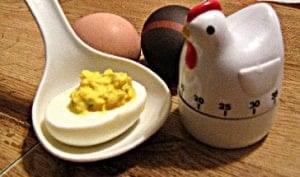This recipe is designed to deliver antibacterial properties that prevent bacterial infections while not harming the helpful, natural bacteria our skin needs to survive. The trouble with so many commercial antibacterial cleansing products on the market is they kill both harmful and friendly bacteria, which creates imbalance in the body and weakens the immune system. The essential oils in this formula promote health and balance while protecting against the kinds of bacteria that cause infections.
Do not mill soap that doesn’t say it is soap. Some beauty or bath bars are made with petroleum products, which aren’t good for your skin. Read the label carefully to be sure that the soap you want to use truly is made with all-natural ingredients and is thus real soap.
Ingredients
- 1 bar of unscented, all-natural soap
- 1/2 cup warm water
- 3 drops each of lavender, tea tree, and sage essential oils
Equipment
- 1 cheese grater
- 1 sharp knife
- 1 mixing bowl
- 1 stirring spoon
- a nonstick surface or mold for drying the soap
Procedure
- Grate the soap with the cheese grater into a non-reactive pot.
- Gently stir and heat the soap on the stove over medium to low heat, adding enough water to keep the soap from scorching but not so much it gets soggy.
- When the soap is thoroughly melted, remove the pot from the stove.
- Keep stirring the soap until it just begins to harden.
- Add the essential oils and mix them in well. You want to add the essential oils when it’s as cool as possible but still pourable.
- Pour the soap into one or more molds.
- Let the soap stand until it has cooled completely and has begun to harden. If you wish, you may take the soap out of its mold and pat it into palm-sized balls as shown above. The hardening process may take a few days, depending on the amount of humidity in the air and on how much water was added during the milling process.
- Turn the soap onto a wire cooling rack or another hard, non-reactive surface and let it stand until it has hardened completely.
Storage and Use
Store any extra bars of antibacterial soap in a tightly sealed, non-reactive container.
As with all bars of soap, it’s a good idea to keep your homemade antibacterial soap on a clean, dry surface such as a mesh, wire, or bamboo soap dish between uses.
You can substitute use any of the following essential oils for those in this recipe:






